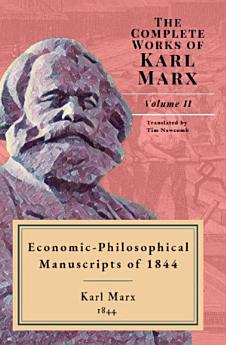Economic-Philosophic Manuscripts
About this ebook
Composed between April and August of that year, these manuscripts sketch a humanist critique of private property, money, and political economy through the lens of speculative philosophy and are saturated with allusions to Hegel’s Phenomenology of Spirit, Adam Smith’s economic theory, and Feuerbach’s human-centered theology. Although never completed, they articulate early formulations of alienation, need, labor, and species-life that would reappear in transmuted forms in his later economic works. The third manuscript includes a prefatory section that retroactively serves as a key to the other two, offering a theoretical justification for the method and categories being deployed. Their disordered form belies the underlying coherence of an author attempting to locate the conditions under which man could be restored to himself through the transformation of the economic base.
This modern Critical Reader’s Edition includes an illuminating afterword tracing Marx’s intellectual relationships with revolutionary thinkers and philosophers (including Hegel, Feuerbach, Engels, and Ricardo), containing unique research into his ideological development and economic-metaphysical theories, a comprehensive timeline of his life and works, a glossary of Marxist terminology, and a detailed index of all of Marx’s writings. This professional translation renders Marx’s dense, dialectical prose into modern language to preserve the original force and precision of the text. Combined with the scholarly amplifying material, this edition is an indispensable exploration of Marx’s classic works and his enduring Hegelian-Protestant influence in the political, religious, economic, and philosophical spheres.










